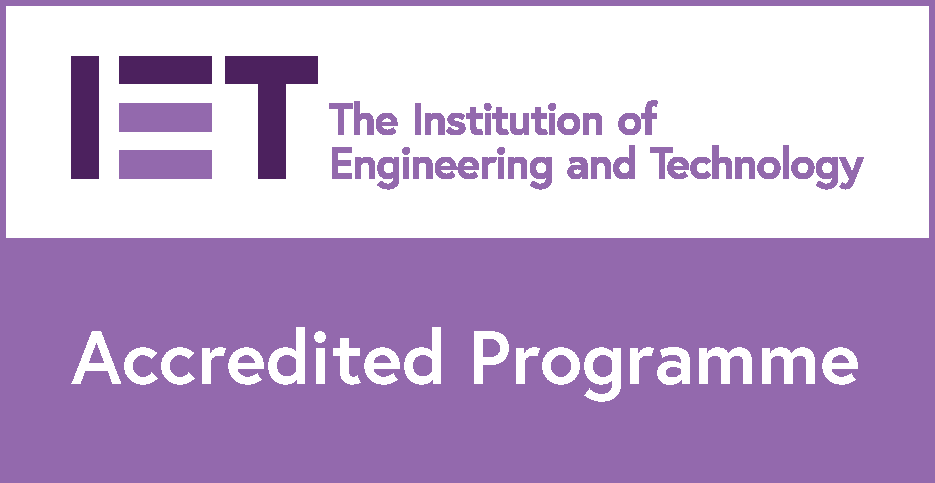Strand Campus
Strand Campus feels like the heart of London—historic yet buzzing with energy. Nestled by the Thames, it offers world-class academics, vibrant student life, and endless inspiration from the city’s culture and diversity.
Our BEng in Electronic Engineering opens the door to a rewarding career at the forefront of global technological innovation. Our programme offers a rigorous foundation in core principles, including foundational and advanced electronics, mathematics and design thinking, combined with extensive hands-on experimentation and project work. Our integrated approach empowers you to apply your knowledge in practical, impactful and innovative ways, preparing you to lead in an ever-evolving technological landscape.
Our course focuses on four key areas in electronics: circuits and systems, signal processing, computing and communication. You will develop in-depth knowledge of and practical expertise in circuit analysis and design, communication systems, computation and programming, and hardware design. This hands-on experience enables you to develop not only advanced technical expertise, but also the creativity, problem-solving ability and interdisciplinary insight essential for driving innovation in today’s world.
You can also choose to study on the integrated Master’s (MEng), adding a fourth year to your degree during which you’ll undertake substantial group research and a design project, integrating advanced knowledge from four years of study. The MEng is the main qualification pathway for students who make an early decision to train as engineers.
Accreditation
The programme is accredited by the Institution of Engineering and Technology (IET) on behalf of the Engineering Council for the purposes of partially meeting the academic requirement for registration as a Chartered Engineer. The integrated master’s programme – the MEng – fully meets the requirements.

From my experience, not only have the staff and research students been super approachable and encouraging, but they have also been super generous in letting me take part in some of their ongoing projects, from developing innovative surgical tools or working with connecting drones to 5G networks!

Electronic engineers work across diverse sectors to solve complex global challenges and build innovations that drive progress. As such, the engineers of tomorrow require in-depth, specialist knowledge alongside skills in critical thinking, project management and an awareness of the environmental, business, social, legal, and regulatory contexts in which they operate.
Our unique degree combines a rigorous foundation in the technical and mathematical principles of electronic engineering with holistic, interdisciplinary teaching in design, problem-solving and entrepreneurial skills. Additionally, in years one and two, 25% of modules see you apply your learning to innovate and create new products and services for the benefit of society.
The first two years contain everything we believe engineers need as a solid foundation to explore real-world problems in the third year. This includes mechanics, energy and thermofluids, signals and systems, materials, modelling, programming, and engineering design and management.
Our project-based learning sees you implement your knowledge across different industries and sectors, considering the full stack of requirements, from specifications and design to manufacture and assembly, to operation and testing. You'll gain agile and iterative skills using storyboarding and Kanban, ideal for software-centric roles. Later, you'll learn systems engineering with model-based approaches, aligning with companies like Jaguar Land Rover. Finally, you’ll be introduced to an entrepreneurial approach to funding, IP, and startup dynamics.
In the third year, alongside core modules deepening key knowledge areas, you can choose from a diverse range of optional modules including machine learning and algorithms, vehicle dynamics and future automotive technology, power systems, semiconductor materials and more.
You will then undertake a substantial individual project, such as designing a robot or a solar energy system. For this, you’ll get to use our dedicated Engineering Project Space fitted with advanced technologies including industrial robots, 3D printers, composites manufacturing facilities, VR headsets, motion capture cameras and material testing machines.
The course is taught at King’s Strand and Waterloo Campuses, putting you in the heart of London with access to all its academic resources and within easy reach of the social and entertainment attractions of one of the world’s most cosmopolitan cities. The Department of Engineering is based on the Strand Campus.

Reviewed, inspected and accredited by the The Institution of Engineering and Technology (IET)

King's College London and Affiliates
Strand Campus feels like the heart of London—historic yet buzzing with energy. Nestled by the Thames, it offers world-class academics, vibrant student life, and endless inspiration from the city’s culture and diversity.